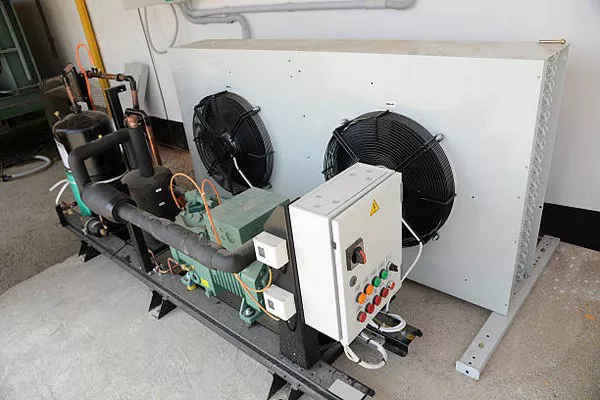In an age where uninterrupted power supply is essential for both comfort and productivity, having a reliable generator to power your home during outages is becoming increasingly important. However, choosing the right generator can be a daunting task, considering the variety of options available in the market. Factors such as power requirements, fuel type, budget, and maintenance needs must all be carefully considered to ensure you select the most suitable generator for your specific needs. In this comprehensive guide, we will delve into the various aspects to consider when determining the generator that best fits your home.
Assess Your Power Needs
The first step in selecting a generator for your home is to assess your power requirements accurately. Make a list of all the essential appliances and systems you would like to power during an outage. These may include lights, refrigerator, heating or cooling systems, sump pump, medical devices, and electronic devices such as computers and TVs.
Once you have identified the appliances you want to power, determine their wattage requirements. This information can typically be found on the appliance labels or in the user manual. Add up the wattage of all the appliances to calculate the total power consumption. This will help you determine the size of the generator you need.
Types of Generators
Generators come in various types, each suited for different applications. The two main types of residential generators are portable generators and standby generators.
Portable Generators: Portable generators are versatile and can be moved to different locations as needed. They run on gasoline, propane, or diesel fuel and are typically used to power a few essential appliances during an outage. Portable generators come in a range of sizes, from small units suitable for camping or small homes to larger models capable of powering multiple appliances.
Standby Generators: Standby generators are permanently installed outside the home and are connected directly to the electrical system. They are designed to automatically turn on when there is a power outage and can provide backup power to the entire house. Standby generators are powered by natural gas, propane, or diesel and are available in various sizes to meet different power needs.
Consider Fuel Type
When choosing a generator, consider the availability and cost of fuel in your area. Gasoline is readily available but may not be the most cost-effective option in the long run. Propane and natural gas are cleaner-burning fuels and are often preferred for standby generators as they can be connected directly to the home’s gas line. Diesel generators are efficient and reliable but may require more maintenance.
Sizing Your Generator
Choosing the right size generator is crucial to ensure it can meet your power needs during an outage. Undersized generators may struggle to power all your essential appliances, while oversized generators can be wasteful and inefficient.
To determine the appropriate size for your generator, consider both the starting (surge) and running (continuous) wattage requirements of your appliances. Appliances with electric motors, such as refrigerators and air conditioners, may require additional starting wattage to overcome the initial surge when they are turned on.
It is recommended to consult with a qualified electrician or generator dealer to help you size your generator accurately based on your specific requirements.
Factor in Transfer Switches and Installation Costs
For standby generators, you will need a transfer switch to safely connect the generator to your home’s electrical system. The cost of the transfer switch and installation should be factored into your budget when purchasing a standby generator. Additionally, consider the installation requirements, such as location, permits, and any necessary electrical upgrades.
Budget Considerations
Generators vary in price depending on their size, type, and features. While portable generators are generally more affordable upfront, standby generators offer the convenience of automatic operation and can provide backup power to the entire house. Consider your budget constraints and weigh the upfront cost against the long-term benefits and reliability of the generator.
Maintenance Requirements
Regular maintenance is essential to ensure your generator operates reliably during an outage. Portable generators require basic maintenance tasks such as oil changes, filter replacements, and fuel stabilizer additives to keep them running smoothly. Standby generators typically require less maintenance but should still be inspected and serviced periodically by a qualified technician.
Noise Considerations
Generators can be noisy, especially portable models with gasoline engines. If noise is a concern, look for generators with sound-reducing features such as mufflers or enclosures. Standby generators are generally quieter than portable generators and are designed to operate at a lower noise level.
Environmental Impact
Consider the environmental impact of the fuel type used by the generator. Propane and natural gas are cleaner-burning fuels compared to gasoline and diesel, emitting fewer pollutants and greenhouse gases. Additionally, standby generators are more fuel-efficient and produce fewer emissions than portable generators.
See Also What Does a Generator Run On?
Conclusion
Selecting the right generator for your home involves careful consideration of your power needs, fuel type, budget, and maintenance requirements. Whether you opt for a portable generator for temporary backup power or a standby generator for automatic, whole-house backup, investing in a reliable generator can provide peace of mind and ensure your home remains powered during outages. Be sure to consult with a qualified electrician or generator dealer to help you choose the best generator for your specific needs and to ensure safe installation and operation. With the right generator in place, you can rest assured that your home will stay powered when you need it most.

